I was half way through writing my next post, a post on facilities v success i.e. do 1st class facilities facilitate 1st class performance and yet another hammer drops within Rugby League. Salford have a fan-based squad-builder fundraiser set up to help buy players. I’m not knocking the actual act and it’s honourable of the fans to try and help. I just can’t recall ever seeing this happen within other professional sports’ clubs. A quick search provided zero results other than Portsmouth fans crowdfunding £270 000 to buy their Academy training ground to make sure that it would remain theirs rather than continue renting.

Then Leigh. Pay Super League contracts to Championship players without having the money to do so. And when they don’t get the predicted finish and related prize money? “We can’t afford to pay you, we’ll allow you to go to other clubs…..”. And this goes on, year after year. It’s what Robbie Hunter-Paul called rolling the dice. And that’s exactly what it is, hoping for a 6 and rolling a 1.
Would any other business ever even contemplate the act, let alone act on it.
“Mr CEO, we have a chance to go from being a medium sized enterprise to an international sized enterprise in a single year – it would mean our turnover would rise from £200 000 a year to £1.2 Million” “Brilliant, how do we do it?” “We’re going to put all our money into Gold and hope the the price of Gold rises” “But what if the price of Gold goes down?” “It won’t. But IF it did, well, we’d have to sack all our employees and we’ll pretty much have to close the business” “Could we not just work hard on our infrastructure and help our employees develop, grow our customer base and get to that point over, say, 5 years?” “Yes, but where would the fun in that be?” “Mr General Manager, Please leave my office and remove your belongings from your desk…”

Photo by rawpixel.com on Pexels.com
And that’s what happening!
I’m not comparing Super League to the Premiership, I’m comparing it more to League 2. Northampton, Bury, Port Vale? All sustainable clubs. Exeter, Crewe, Yeovil Town? All had their up’s and down’s but haven’t nearly gone to the wall. So is this just something Rugby League has to accept or should the RFL do something about it.
That’s point 1.
Point 2 is should this be the RFL’s number 1 priority? Because as it stands, the game is being pushed and pulled from all directions. I know my voice carries no weight, but I like to think that I’m pretty down to Earth and have some common sense (many would disagree with that, however). And so here is my thoughts on how Rugby League could take big steps forward and I think it may resonate with quite a few people who I have talked with about the situation. By the way, I am very open to different views and any reasoned arguments as to why these views may not work are very much welcomed – so this is very much a starting point for discussion rather than a point by point resolution!
So we start as a 12 year old playing rugby for the local club with his mates, who turn out week after week and love just playing. These boys play together for years and are best of mates and at 14 and 15 start to get noticed as good players. 4 or 5 of the team have developed into very good / potentially great players and get noticed by a few professional clubs as being as such. At 15, these 4 or 5 of the players from this team get offered to join academies and are, of course, over-joyed at this. They go off and start their journeys in the professional game. The 12 or 13 lads who didn’t get picked up, that were part of a winning team last year, have just had their best 5 players taken away and all of a sudden start to lose. And they weren’t good enough for academies. So what’s the point. “There are other things starting to interest me, so I’m not doing this anymore”. (Note 1: There is a big drop in playing numbers at age 16. Under 16 teams fold, the leagues get smaller, the same teams play the other same teams and it gets boring).
Let’s turn to the lads who joined the academies. They get some fantastic coaching, they have some education, they train in a professional environment. They play other academies and they move up the academy ladder. They may get to play some representative games. Then at 19, they don’t get given a professional contract – that’s not to say they aren’t good enough, but they just won’t be getting a professional contract post academy. A few may move to lower division clubs. Most have the option of returning to their amateur club after 4 years of being at a professional club or giving up because they didn’t make it. Those that do swallow their pride and return to their amateur club (many won’t do that) suddenly get to play big, aggressive, fully matured men. (Note 2: They have only ever played other 18 or 19 year olds. They have never played Mad Mike McNoTeeth from West Oldham Bulldogs who’s sole job is to make players think twice about carrying it off their own line. This is a culture shock, and guess what, this 19 year old thinks Rugby League isn’t as fun anymore). And numbers at this age drop again.
From here, we move up to the professional clubs, League 1, Championship and Super League. Squads in League 1 and Championship rarely number more than 30 and if you are contracted, you cannot play amateur rugby. Therefore say 6 have injuries, you’re stuck with 6 or 7 players not being selected week in, week out. These players say that they want to play and their only option is to therefore get put out on loan or Dual reg to other clubs who then have players not playing. Who then get disillusioned, and who end up not playing.
And the playing squads get smaller, so clubs bring in quota spot players. And the quota spots take the place of current players, who then go out on loan, who then replace lower league players, who then don’t play…..bada bing bada boom Yada yada yada.
It’s not hard to see how consecutive RFL decisions, all made with good intentions, have formed pretty much a perfect storm of downward spiral.
“So how can we stop this?” The crowds yell. Well, in my eyes, it’s pretty easy. But it would take a brave and strong ruling body to take bold action. I understand the research and the rationale behind the ‘Embed the Pathway’, sorry, ‘England Talent Pathway’, cough, £100k to change a name, cough, I have sat in the development days and meetings many times. But I don’t think the junior academies work for Rugby League. Definitely keep the senior academies and link them with a reserves team. YES, we’re all saying it!! RESERVES. Because here is the ‘Easy Teen Pathway’: (Note 3 – Please don’t spend any amount of money changing a name to this….)
We start as a 12 year old playing with his mates. At 14 and 15 the team have 4 or 5 good players, and they can play with other good or potentially very good players in a ‘area development’ team, perhaps called a ‘service area team’. These teams can take the best players and let them play against other areas best players and still play for their amateur club with their mates. At 17 – 19, Professional teams could invite players that they see with talent or potential to play in their Academies. Should they not be getting game time, they could be released back to their amateur clubs but still remain or train or be involved in the academy. A certain amount of communication would be required between amateur and professional club here, mind, perhaps this would be what could be termed ‘a relationship’ between amateur and professional clubs. Perhaps even develop this into ‘a link’. Mad, I know, but he who dares to dream.
As their time comes to an end, or when the coaching team sees fit, the Senior Academy lads progress to a Reserve team, where they get to play a better standard of player and develop their strength of both body and mind. Keeping the ‘relationship’ going with the local amateur teams, the Reserve team could provide opportunities for local amateur players to play, however, this would require the RFL to allow ‘trialists’ to play in the reserves teams. This could cause massive problems, as it is clear to all involved in Rugby League that UNDER NO CIRCUMSTANCES should an amateur player be allowed to play at a professional club and that a meaningless £25 a month contract should be in place for professional club reserve players to prevent that player playing amateur club rugby, as this could help him develop as a player. Oh, hang on. No, that sounds ridiculous. But that is what is happening at some clubs who are trying to develop reserve team players. Due to the ‘voluntary’ nature of current reserve team games, some contracted players could be playing as little as 6 games a season, and are not allowed back to their amateur clubs even if they haven’t played a game in a month. It would mean that players have to be managed to make sure they don’t play too many games, but this could help develop the pro / amateur club ‘Relationship’ even further.
And then, guess what? a few players shine in the Reserves and get 1st team game time. And everyone thinks ‘wow, these home grown lads are good’ and we can now give them a proper contract and we might be able to use the quota spots more effectively and the game as a whole may benefit.
As I mentioned earlier, I don’t think it’s that difficult, it just needs a strong leadership and a buy in from other parties, such as BARLA, for the good of the whole game, rather than a vanity project with self-promotion as the main motivation…..Over to you, RFL.
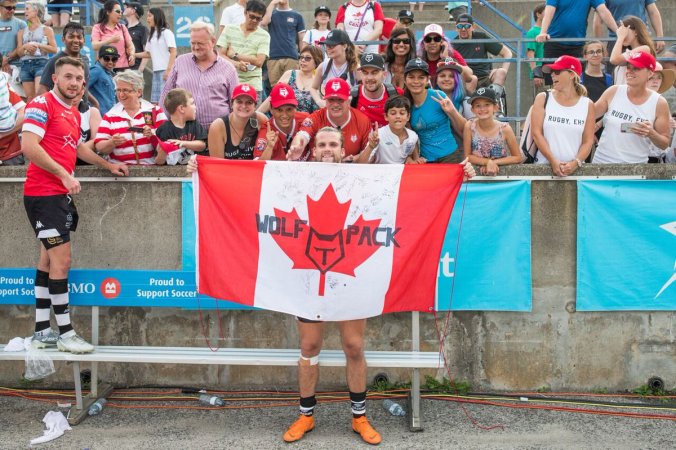








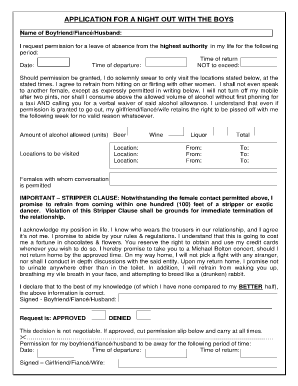





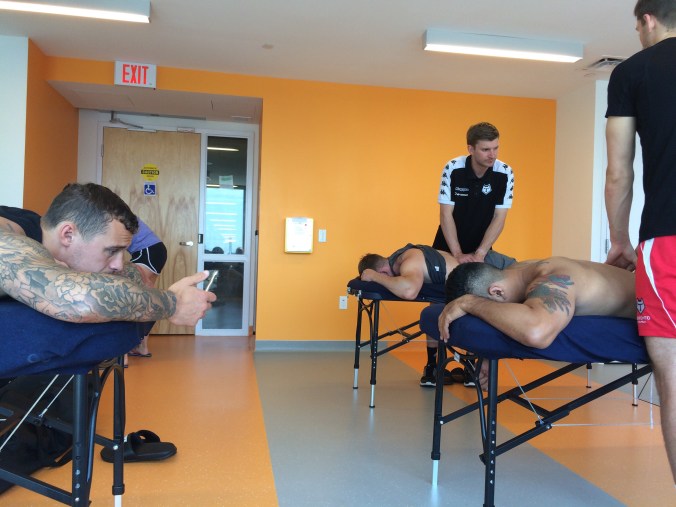
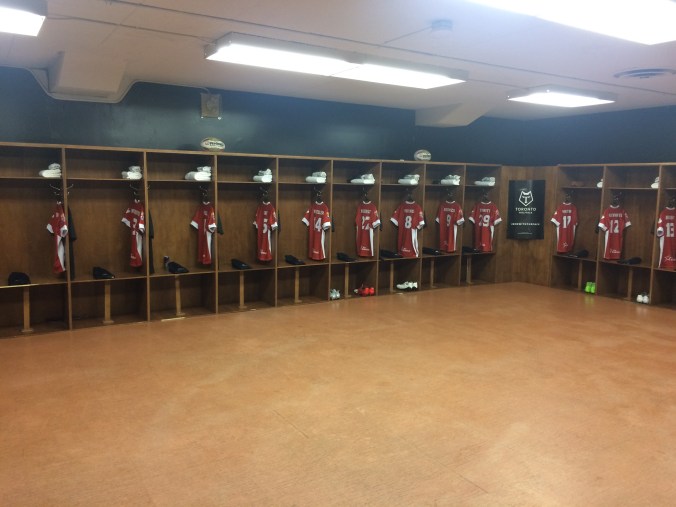















![IMG_1284[1] IMG_1284[1]](https://i0.wp.com/backroomrugby.com/wp-content/uploads/2017/06/img_12841.jpg?w=222&h=295&ssl=1)
![IMG_1326[1] IMG_1326[1]](https://i0.wp.com/backroomrugby.com/wp-content/uploads/2017/06/img_13261.jpg?w=221&h=295&ssl=1)
![IMG_1327[1] IMG_1327[1]](https://i0.wp.com/backroomrugby.com/wp-content/uploads/2017/06/img_13271.jpg?w=221&h=295&ssl=1)
![IMG_1332[1]](https://backroomrugby.com/wp-content/uploads/2017/06/img_13321.jpg?w=676)
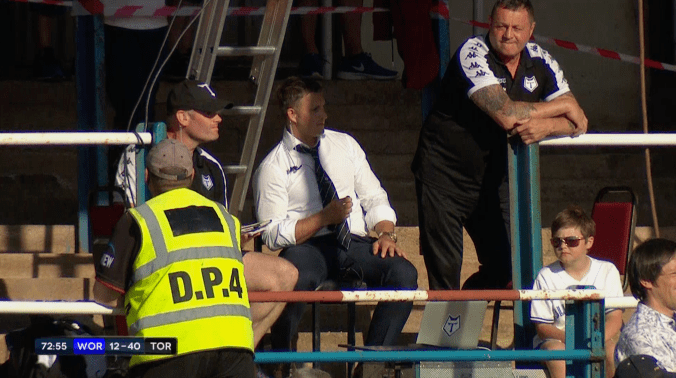
![IMG_1333[1]](https://backroomrugby.com/wp-content/uploads/2017/06/img_13331.jpg?w=676)